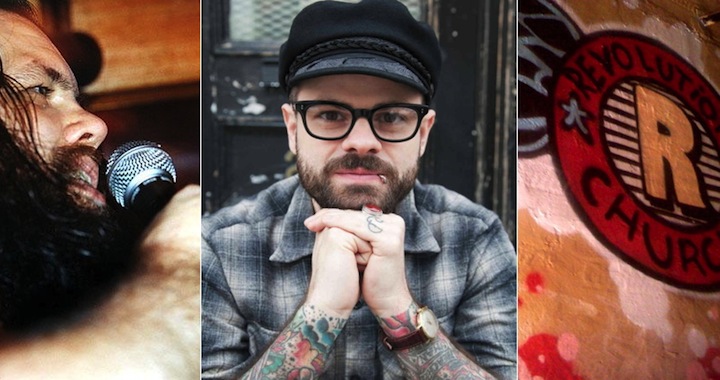I often get emails from people, stuck in dogmatic churches, who are hungry for grace. They hear the message of the cross expressed in terms of God’s restorative justice, rather than divine wrath and revenge, and they ask me where they can find a church that teaches that, too. They hear the focus on unconditional grace and radical acceptance and long to be part of a church with that focus as well. So they write to me asking “Where do you go to church?”
I wish I could say I have found a great church where people are focused on being real and loving each other, warts and all. A place where asking hard questions is not a sign of moving away from Jesus, but a sign of moving closer to him. A place where the goal is not for one guy in authority to control people’s morality like they were infants, but to empower everyone to develop a mature adult faith.
That’s what church ought to be like. So why is a place like that so hard to find?
Maybe it’s because pastors feel a pressure to act as if they are perfect, and so end up leaving no room for us to ask healthy questions either. Instead, they’re pressured to act as if they have it all together. With us its the same: We get up and sing happy and triumphant songs that often don’t really reflect our reality, instead of creating an atmosphere where we can be real and loved for who we really are.
I’d love to go to a church that was focused on grace and messy radical love. I haven’t found a place like that where I live yet. But I have been “attending” Revolution Church for quite a while via their podcasts from Pete’s Candy Store in NYCand more recently from a bowling alley in Minneapolis, and I am proud to call Jay Bakker my (virtual) pastor. What makes Jay so awesome is that he is an open book. Rather than being authoritarian, he gets us all to think and reflect by modeling this for us—including humbly questioning himself. Rather than acting like he has it all figured out, he demonstrates what normal and healthy struggle looks like, and in so doing creates a space for us to face our questions, too. He has real authority because he uses his power to lift up those who are often marginalized and kept down. He’s my hero precisely because he is not invulnerable and perfect, and makes it a little more okay for the rest of us to admit we aren’t either.
I wish there were more churches like Jay’s. I’d be the first in line if there was one near me! The trouble is that because he is focused on taking a stand for love alongside the marginalized, rather than making money his main goal and bottom line as so many churches do, that means he struggles sometimes to make ends meet. It’s the opposite of the mega-church, and that is good because it means that it’s the kind of radical place that Jesus wanted us to be a part of, and at the same time hard because the way of Jesus was never intended to be a business model.
Now of course face to face is always better than through a wire. So please don’t misunderstand me to be saying that I think a virtual church is ideal over face to face relationships. If I lived in the same town as Jay, I’d much rather go there in person. That would be ideal, but the fact is, many of us (myself included) don’t always have access to the ideal. So we need to find a way to deal the best we can with the messy imperfect reality we find ourselves in.
So if you find yourself in the same boat, and are looking for a church that is focused on grace but just don’t have anything like that in your neck of the woods, I’d like to invite you to come to my “church” next week. There’s no commute, no problem with parking, you just need to stick some headphones on your ears and tune into the podcast. It’s not perfect, but I’m learning that maybe that’s okay.

